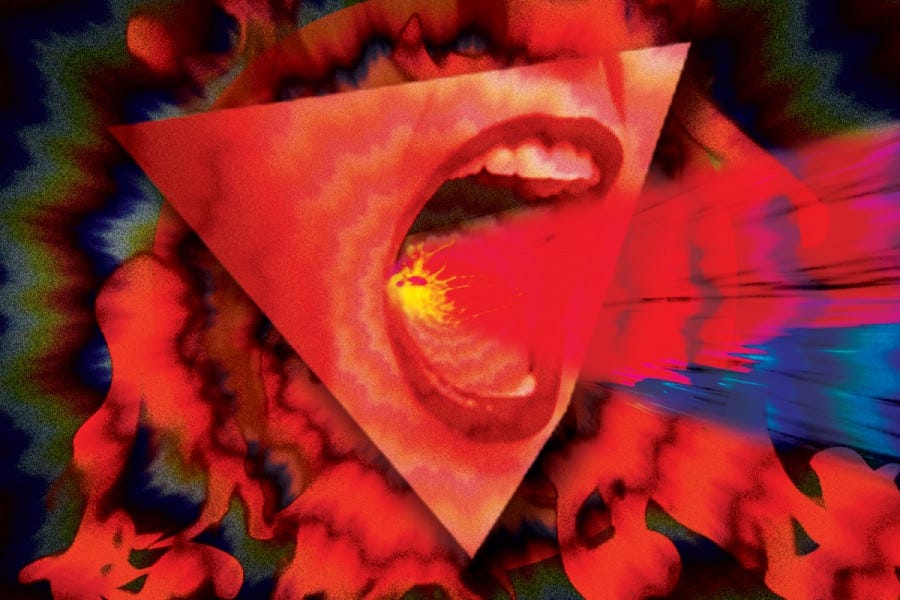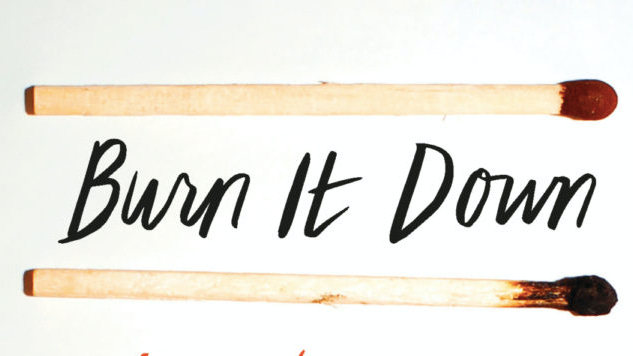Six years ago I had a newborn baby and a toddler. I’d gone from working as the smedia advisor for one of the most important public sector officials in the country to being someone who couldn’t get out of their pyjamas before her husband got home from work.
I had two babies who I felt like I was failing on a daily basis and my vagina felt like it was falling out. My nipples were bloody and bruised and I felt so desperately alone that I had begun writing screeds to nobody on my phone.
I felt like nobody.
I used to be so confident. I ran media training. Select committee training. I would stand in front of a boardroom of men and tell them what they needed to do, and for the most part they listened to me.
People told me I knew myself.
And then I suddenly knew nothing. Certainly not myself. I had one baby that was constantly in hospital and another that had been screaming since he entered the world only a few weeks before.
People talked to me in a way they’d never spoken to me before. I was a grown woman yet people would talk to me like I was an idiot – “You really need to get them into a routine” they’d say minutes after meeting me in the park in my 30 minute allotted time to take the double pram out because the kids were in a fucking routine.
They’d tell me I looked unwell – yes, that’s what happens when you don’t sleep for months after pushing an 11 pound baby out of your body. One friend told me that I looked like motherhood didn’t suit me. I went home and cried and cried – sure my secret was out.
I thought I wasn’t a good mother and now everybody would know. I was so bad it at it that I wore it on my face, incapable of hiding it.
I felt so lonely. I would try to catch up with friends and I felt completely invisible. I felt like my attention was on a million things – I wanted to join in but in my head all I could think was please don’t touch the toddler, he’s immune compromised. Please wash your hands. Please don’t wake the baby.
My voice constantly caught in my throat. I had a mouthful of marbles as I tried to sip a cold coffee and appear normal.
And I felt rage. Real, pure rage. Women are not meant to feel rage. Mothers are definitely not meant to feel rage. But what other reaction could you have to feeling as if suddenly you’re disappeared from the world because you brought human life into it?
Helplessness? Grief? I felt those things but the rage was the most defined.
Image by Aiden Locke
I clawed through the early years of my children’s lives feeling a joy that could not be described, a gratefulness that they were mine that felt all encompassing. They delighted me constantly. Freckles appeared on my toddler’s face and I found myself overcome. I cried holding his sleeping face in my hands, I’d never seen anything more beautiful.
A wiggly tooth became my world. Hearing him say mama was the sweetest sound I ever heard.
And in the happiness, was something else. There was a seething rage at the lost opportunities of women because they did what society told them to do – give birth and stay home.
And I was not alone in feeling that. All around me I found women who were like brides under veils, as soon as you lifted the white covers they exploded forth with a right and warranted fury.
Childcare is expensive and not of a high enough quality. The expectations on mothers to be perfect are as high as the cost of living. Unsolicited advice lurks round every corner and women told me even home felt unsafe. Maternity leave is too short, work too insecure, flexible hours impossible, too many hours worked and not enough hours paid.
Thousands of women were pushing their children on the swings as they flipped between rage and delight, grief and gratitude, hopelessness and helplessness. Thousands of women are doing this.
There were so many stories flooding in. As we talked in whispers with our children chewing on their fists we began to feel the power.
We realised something crucial. Rage and happiness hold each other up and make each more powerful. Anger is at its heart the most hopeful of feelings.
It says to us that we want better for each other, for all children.
There is power in rage. There is power in a collective of women so grateful that they demand better. There is power in that union. And there is a union of women that has always existed but has been pushed into the corners of rooms with blacked out curtains and white noise blaring. That sisterhood of no sleep.
There is a furious want nd need for a better world for all. A world like a child to be nurtured by us all. Rage doesn’t just fuel that drive, rage burns with joy too. We see what could be, we know what is needed and we strive for it – buoyed by a feeling that in fighting for it we are actively doing something that honours all generations that came before us and will come after us.
Constructive anger is healing. Fury at inequality, at prejudice, at the silencing of women is valid. The baseless, fragility inherent in toxic masculinity has been accepted for so long. It is accepted at the expense of women who are told their rage is unfounded, irrelevant, over the top. Be quiet. Make yourself small. Don’t be so hysterical. Are you on your period? Not need to get so worked up honey. Calm down.
The front cover of Burn It Down: Women Write About Anger, edited by Lilly Dancyger.
This International Women’s Day I think we should call on each other to see what our collective anger can do. Women’s unionised rage gave us the vote – how will we use it? It gave us childcare – how can we improve it? Our fight gave us a maternity system led by women and for women – how can we protect it? How can we push for care for women’s mental health? For safety in the home and the workplace?
The theme of this year’s International Women’s Day is Choose to Challenge. It feels fitting because we do need to show up and stand up.
We will be told, as women have been since the dawn of time, that our anger is wrong – that it’s unladylike, over the top, unnecessary. That it’s the wrong reaction to discrimination, violence, abuse, inequity, oppression and attacks.
We will be told we must be objective, calmer, neutral in the face of injustice, that if we just talked nicer – then maybe we’d get somewhere.
They’ll say: You catch more flies with honey.
Well, I say: Fly spray works even better.
If your voice comes out and it’s guttural and shrill, forceful and strong? I will stand with you. Our anger is a gift that will bring about change if we embrace it.
Don’t let the fuckers get you down.






I can remember sobbing “I’m not cut out for this” on my husband’s shoulder in our hallway, as our newborn twins cried and cried in the living room. The first nine months at home with two babies were the darkest days of my life. I found being at home with them so hard that I became physically ill, and in the longer term I chose to run myself ragged tackling a full-on uni degree from when they were 14 months old (part time until they turned three, because I felt bad about not being home with them and instead half-killed myself trying to combine being a hands-on Mum with being really busy with assignments), and then full time at uni.
I am so thankful that those days are behind me, and I honestly marvel at anybody who has more than one pregnancy, because I couldn’t have lived through it all again (admittedly two babies are insanely hard, but even so!). I’ve most recently felt mother-related rage when my younger sister - a mother of two older teenagers and one three year old who has reinvented herself as a #gentleparent and is extremely sanctimonious with it - just casually dropped into a conversation that she’s obviously much more maternal than me because, unlike me, she’s chosen to make her third child the sun around which the rest of their household orbits. I somehow managed to resist the urge to swear profusely as I politely challenged her views and pointed out that I’m extremely maternal towards my kids, who are eight years old and adore me, but that ‘maternal’ isn’t a static state or a gold star we earn by ‘doing’ motherhood in a particular way.
Caring for children is the most important thing a person can do for the sake of this world. The work that mothers do is the work that creates a society. That society shapes the world we live in, our environment, the cities and towns we live in. When will this be realised, acknowledged and appreciated? That is what makes me angry.
What will it take for people to realise that parenthood (especially motherhood) is completely incongruous with modern life?